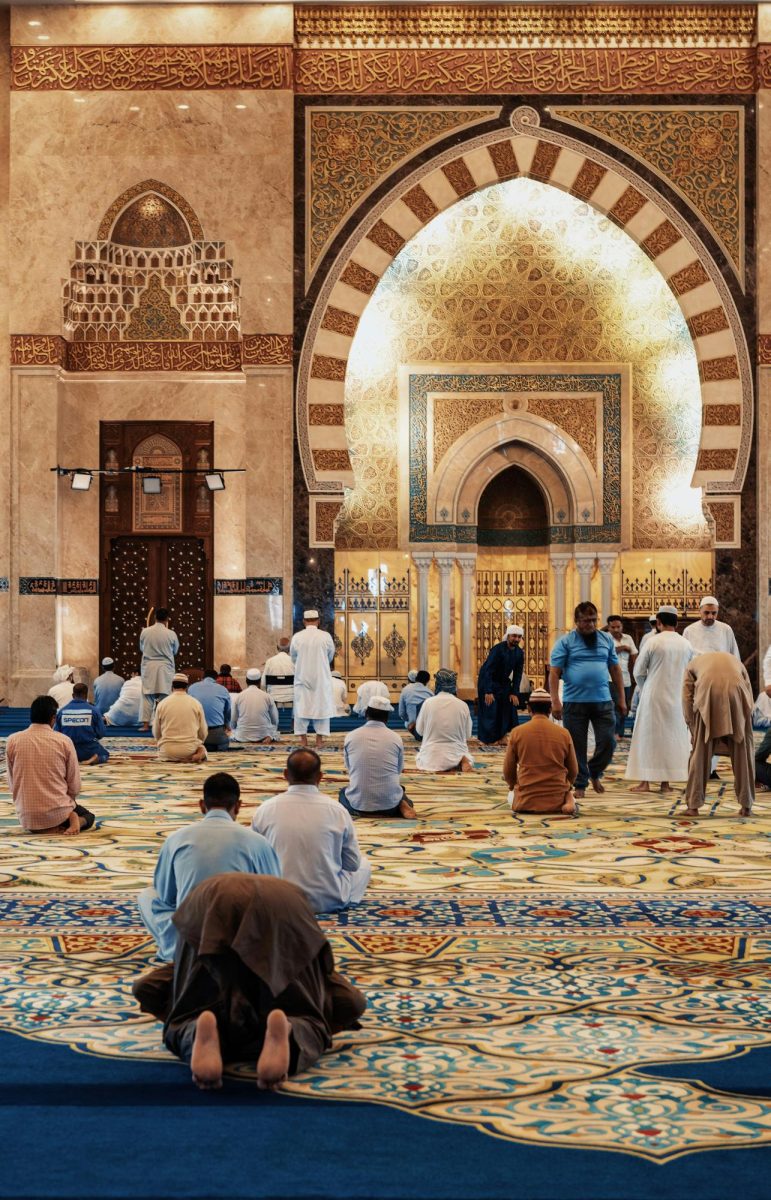Ramadan is the ninth and holiest month of the Islamic calendar during which Muslims fast for 30 days. This year, Ramadan began on March 1 and will conclude with Eid-al-Fitr on March 31.
The religious significance of this month comes from the belief that it is the month when the Quran, the holy book of Islam, was brought down from the heavens. According to the Quran, this month serves as a time of reflection where religious practices are emphasized.
This year, Ramadan lines up with the month of March. Fasting began on the first day of the month. It hasn’t been confirmed which day Eid al Fitr will be, but that is the celebration that concludes Ramadan. It is forbidden to fast on the day of Eid al Fitr according to Islamic Relief.
There are certain rules and rituals that Muslims follow during the month of Ramadan, one of them being the fast from dusk until dawn. There are also certain acts that are recommended, for example, breaking the fast with three dates.
These recommendations come from sunnah, which is what the Prophet Muhammad did in his lifetime. Following the sunnah is voluntary, but considered the best way to remain successful as a Muslim.
After breaking the fast and praying the fifth and final prayer of the night, it is recommended to attend the taraweeh prayer. Taraweeh is another example of a sunnah that Muslims are able to do only during Ramadan. It’s a voluntary prayer that consists of long recitations of the Quran.
Ramadan is followed and practiced by Muslims worldwide. No matter where someone is, there is likely a Muslim fasting for Ramadan. There are Muslim students and faculty on campus who are currently adjusting to this new change in their lives.
There is great importance in understanding the different beliefs held by different people in the world. Professor of religious studies, Steven Fink, said religious education is important, specifically learning more about Islam at this time of year.
“There are some UWEC classes that can help students learn about Islam,” Fink said, “Also, the McIntyre Library has a very good collection of books about Islam.”
Fink said there are a few ways students on campus are able to learn more about the faith as well as the special holidays. There are a number of classes offered at UW-Eau Claire that help with education on the topic of Islam specifically, including a few that Fink teaches.
“One misconception is that Ramadan happens at the same time every year,” Fink said.
Fink said the timing of Ramadan is based on the Islamic lunar calendar. What is certain is that it is 30 days in length, because every month in the Islamic calendar is the same length.
Recently, Friends of Islam, a new student organization, was started on campus. Friends of Islam is an organization made for Muslim students, students that would like to support Muslim students or students that are interested in learning more about the faith.
Habeeba Haq, a second-year neuroscience student, is the president of Friends of Islam and said she has begun the process of advertising this new opportunity.
“Friends of Islam will provide a much needed source of community and belonging for Muslim students on campus. Hopefully, it can also be a source of learning and friendship for non-Muslim allies as well,” Haq said.
Haq said that establishing a community will make this experience easier on her and other Muslims on campus, as well as getting some facts out about practicing fasting during Ramadan.
“It can definitely be difficult when you’re surrounded by people who may not quite understand,” Haq said, “Having an established safe space where Muslim students can belong will hopefully make them more likely to attend.”
Arab can be reached at arabsh4872@uwec.edu.







